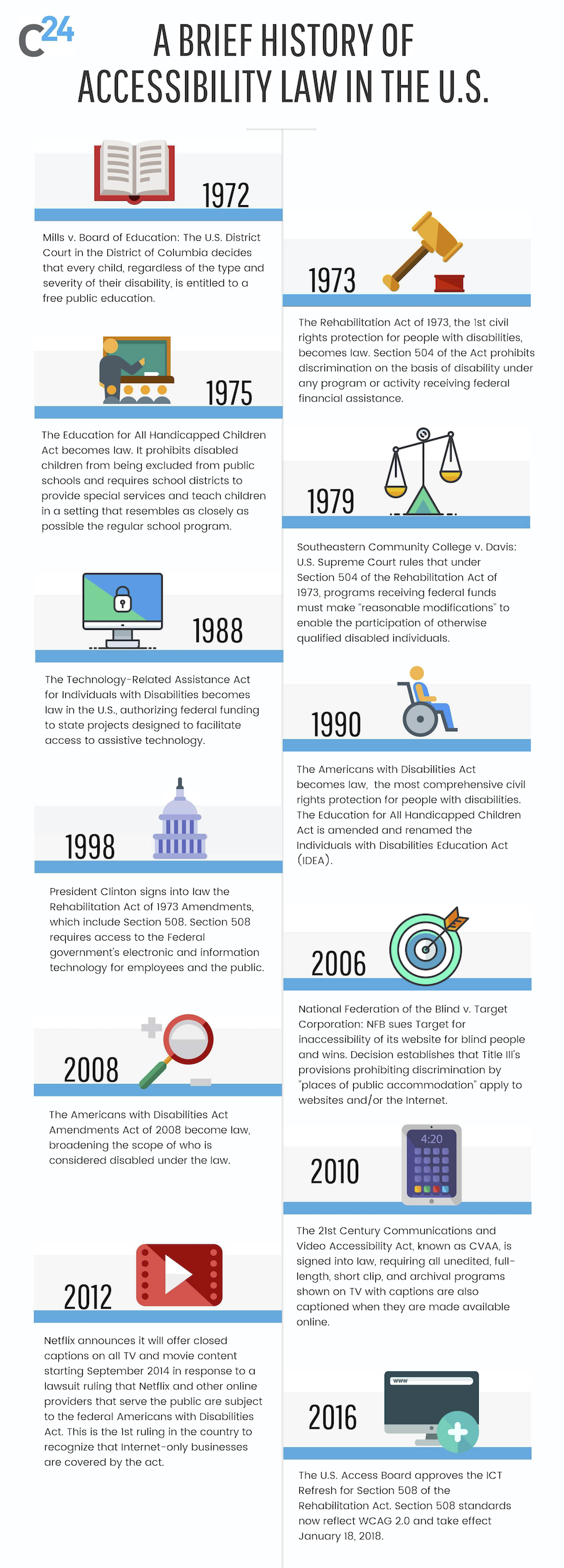History of Disability Law
As government owned spaces and places of public accommodation, libraries are responsible for ensuring that they are accessible to people with disabilities. It is helpful to understand how the laws that govern legal responsibilities are structured, and what basic rights are guaranteed. That said, we encourage you to think beyond strict legal responsibilities, and use these guidelines as a baseline – not a limitation for what your institution can do to be inclusive. The following federal laws (among others) have ensured the legal rights of disabled people in the United States.
Architectural Barriers Act
The law requires that buildings or facilities that were designed, built, or altered with federal dollars or leased by federal agencies after August 12, 1968 be accessible.
Americans with Disabilities Act (ADA)
- Federal civil rights law for people with disabilities. Protects in services, programs, and activities provided by State and local government entities.
- Title I ensures equal employment rights for people with disabilities.
- Title II extends federal prohibitions on discrimination to all activities of State and local governments regardless of whether these entities receive Federal financial assistance.
- Deals with access, employment, and web/technical accessibility.
- Mandates design and accessibility specifications for physical and digital spaces.
Education For All Handicapped Children Act of 1975/IDEA
The Individuals with Disabilities Education Act (IDEA) is a law that makes available a free appropriate public education to eligible children with disabilities throughout the nation and ensures special education and related services to those children.
Rehabilitation Act of 1973
Prohibits discrimination on the basis of disability in programs conducted by federal agencies, in programs receiving federal financial assistance, in federal employment and in the employment practices of federal contractors.
Voting Accessibility for the Elderly and Handicapped Act of 1984 (VAEHA)
Requires accessible polling places in federal elections for elderly individuals and people with disabilities. Where no accessible location is available to serve as a polling place, voters must be provided an alternate means of voting on Election Day.
Voting Rights Act
Prohibits conditioning the right to vote on a citizen being able to read or write, attaining a particular level of education, or passing an interpretation “test.”
Pause for Reflection
- How does your library or organization educate its staff on the history of disability?
- What could be some of the benefits of staff-wide disability education?

